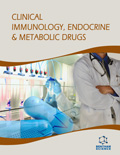
Abstract
Objective: Recent studies have demonstrated the importance of Endoplasmic Reticulum Aminopeptidase 1 (ERAP1) gene variants in inflammatory conditions, including Type 1 diabetes mellitus. However, to date, no large prospective, genetic-epidemiological data are available on the relevance of ERAP1 genetic variation in the risk of non-insulin dependent diabetes.
Methods: The association between 33 tag-SNPs (tSNPs) of ERAP1 and incident Type 2 Diabetes mellitus (T2D) was investigated in 22,718 Caucasian female participants of the prospective Women's Genome Health Study. All were free of known cancer, cardiovascular disease, and diabetes mellitus at baseline. During an 18-year follow-up period, 1,927 newly diagnosed first ever T2D were identified. Multivariable Cox regression analysis was performed to investigate the relationship between genotypes and T2D risk assuming an additive genetic model.
Results: None of the gene variants evaluated were associated with T2D risk.
Conclusions: If corroborated in other large prospective studies, the present findings suggest that genetic variation within the ERAP1 gene locus may not be useful prognostic indicators for risk assessment of type 2 diabetes mellitus.
Keywords: Type 2 Diabetes Mellitus, genetic epidemiology, single nucleotide polymorphisms, ERAP1, risk assessment, gene Variation.
 47
47 3
3 2
2



